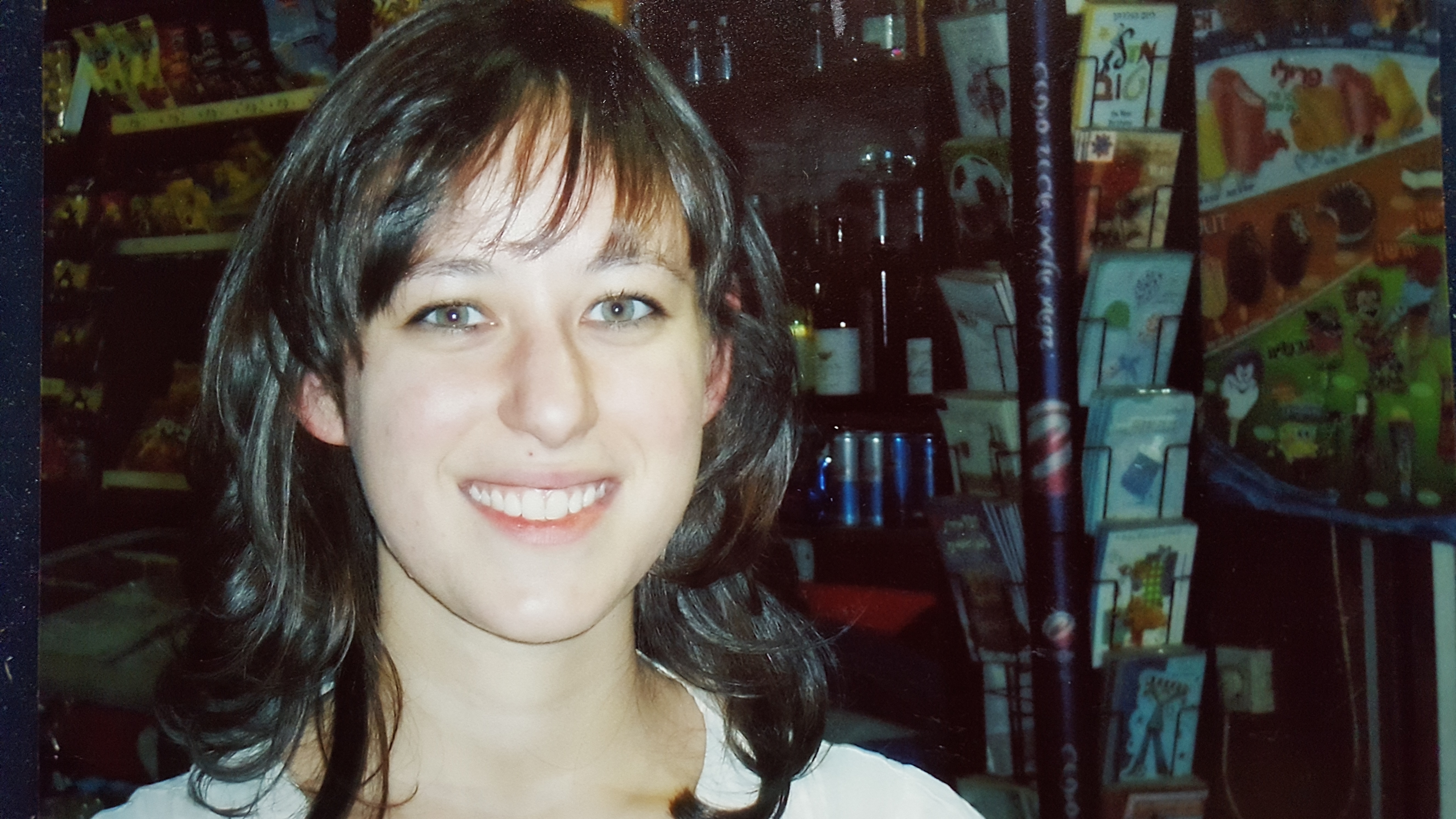TEL AVIV — A West Bank settler who insults American and Israeli leaders might not seem a likely candidate for a job promoting Israel’s image to the world, but Ron Baratz is, indeed, tapped to be Israel's next communications director.
The controversy over his appointment marks a new era of Israeli politics that has seen what used to be considered the fringe right take center stage while Israel’s international isolation intensifies.
“Allow me to be blunt,” wrote Baratz on his Facebook wall last Tuesday. “Obama’s reference to Netanyahu’s speech—this is what modern anti-Semitism looks like in liberal Western countries. It comes, of course, with much tolerance and understanding for Islamic anti-Semitism; so much tolerance and understanding that they'd be willing to give them a nuke.”
Baratz seemed to go out of his way to make this point. It refers to a remark by Obama way back in March when Prime Minister Benjamin Netanyahu addressed the U.S. Congress in a bid to kill the Iran nuclear deal.
Obama called the speech “theater” which “didn’t offer any viable alternatives” for preventing Iran from obtaining a nuclear weapon.
Last year, Baratz targeted Secretary of State John Kerry, comparing his mental age to that of a 12-year-old child and joking on Facebook that Kerry could have a “lucrative career as a stand-up comedian.”
As communications director, Baratz would lead public relations efforts to disseminate positive information about Israel and its actions. So, on Thursday he apologized for online comments ridiculing Obama, Kerry and the Israeli president Ruby Rivlin, saying, “The words that I published were written lightly and sometimes jokingly, in a manner fit for social networks and a private person,” and said that he has requested to meet with Netanyahu to clear up the issues.
There is a patter to Netanyahu’s own public announcements, throwing red meat to the Israeli far right, then pulling back a bit when the international community takes note. During the election campaign last spring, for instance, he ruled out statehood for the Palestinians, then said that wasn’t really what he was saying. Of course, the partisans whose votes he needs tend to think he really meant what he said in the first place.
In this case Netanyahu appoints an incendiary academic as communications director, then lets it be known that he’s actually eager to calm tensions with the United States after a number of heated disagreements over the past year.
Indeed, Baratz will not be joining Netanyahu at the U.S.-Israel Summit meeting at the White House on Monday, the first since world powers agreed to a nuclear deal with Iran in July.
Responding to reports that Netanyahu was reconsidering Baratz's appointment, Netanyahu's official Twitter account dismissed such rumors on Friday, but clarified that Netanyahu “will deal with the issue upon returning to Israel” next week. The final decision will still be subject to cabinet approval.
Even among those in Netanyahu's Likud party, Baratz's public crassness crossed new lines, potentially undermining “the symbols of our government and those of our greatest ally, and may be misconstrued as an official stance,” said Gila Gamliel, a Likud minister.
The White House was first quiet and then more aggressive in calling for an apology.
“This is what we learn in kindergarten about name calling, that it is simply not a polite thing to do,” said John Kirby, a White House spokesperson, deeming Baratz's comments “troubling and offensive.”
But for many Israelis, the revelation provides rare insight into the inner circle of the ruling government, which has for years allowed ministers to put forth blatantly extremist ideas through official channels.
Last month, Israel reacted with shock and consternation when Netanyahu claimed that Adolf Hitler had only wanted to expel Jews from Europe, but was persuaded by the Palestinian grand mufti of Jerusalem, Haj Amin al-Husseini, to “burn them.” In a joint press conference with Netanyahu last month, though, German Chancellor Angela Merkel stressed that “Germany abides by its responsibility for the Holocaust” and that it had no intention of rewriting its history.
“Baratz seems like a particularly weird extremist, but, really, he is actually very much the prototype of the white, professional conservatives who are Netanyahu’s advisors,” Tal Schneider, an Israeli political analyst, told The Daily Beast.
“What we’ve seen with the new Israeli right in the last year or so is that they’re not hiding it anymore,” she added, referring to the extremist views held by Israeli politicians.
They’re also not afraid to gloat at the weakness of their opponents, the Israeli left.
Baratz quipped that photos of Israeli President Ruby Rivlin traveling economy class showed that he was a “marginal figure.” Rivlin is a ceremonial though widely respected figure who is seen as one of the last remaining politicians to speak of Israel as a democratic and liberal, rather than exclusively Jewish, state.
If sent across the Golan Heights border into the war zone of Syria, Baratz wrote, Rivlin would be returned a day later by the Syrians, who would beg: “Take him, Israelis, your president goes around the camp shaking everyone’s hands, trying to speak to us in Arabic he doesn’t know, tells us to unite because it’s a shame we are divided thus into tribes.”
While Netanyahu distanced himself from the comments, he also said he was unaware of them, despite the fact that Baratz's views have long been prominently featured on his Hebrew-language conservative news site, “Mida,” which describes itself as a “news and intellectual site” providing stories overlooked by the mainstream media.
Those stories include Baratz's latest blog post, in which he explains the ways in which maps of Palestinian land loss over the decades were presented on MSNBC to serve a “bigoted, anti-Semitic propaganda.”
And while the gaffes have inspired both confusion and alarm, their bizarre character also highlights an intense undercurrent of isolation, paranoia and increasing religious-based self-righteousness inside Israel’s right-wing government, which has seen a number of its ministers mock American calls for the implementation of a two-state solution as a means of ending the Israeli-Palestinian conflict.
Many in Netanyahu’s government live in and cater to constituencies that see the West Bank—the territory Palestinians envision as part of their future state—as their birthright, and who view the people there as “Arabs,” not as “Palestinians” who have a claim to the land. Many dismiss the assertion made by the U.S. and most foreign countries that those settlements, home to a Jewish population of at least 350,000, are illegal according to international law.
“Let [the Arabs] go back to the places from which they fled... God forbid they take over our small country, which is our one and only,” Yechiel Shavi, Israel's communications ministry spokesperson, told The Daily Beast in a text message. “They are wolves in sheep's clothing.”
Such attitudes are common in the cabinet. Last month, Deputy Foreign Minister Tsipi Hotovely blatantly defied the status quo by announcing that she dreamed one day an Israeli flag would fly over the Temple Mount, a plaza considered sacred to both Muslims and Jews, which has been a flash point for the surge in violence over the past two months that has left 11 Israelis and at least 70 Palestinians dead. Baratz has previously stated that he would like to see a third temple built on the compound.
“In the past we were considered a small minority, maybe even lunatics, zealots, and today we are part of the mainstream,” said Yehuda Glick, a representative from the Joint Committee of Temple Organizations who advocates an expanded Jewish presence at both the Temple Mount in Jerusalem and in all areas of “Judea and Samaria,” the biblical name for the West Bank.
“It’s happening slowly and gradually, but it will eventually happen that the Jewish people fulfill their [prophesied right] to the Temple Mount and to all of the land,” said Glick, who is 33rd on the list for the governing right-wing Likud party, and thus has a strong chance of entering the Knesset.
As the religious-nationalist Israeli right continues to embed itself deeply in domestic and foreign institutions, there are few options for recourse among the state’s old cultural guard of secular and liberal elite.
Leading novelist and recipient of the Israel Literature Prize Amos Oz publicly announced on Thursday that he had for months refused to participate in foreign ministry events abroad, citing a growing “radicalism” in official domains.
In an interview with The Jerusalem Post, he said, “The decision is aimed against the government, not against my country.”






